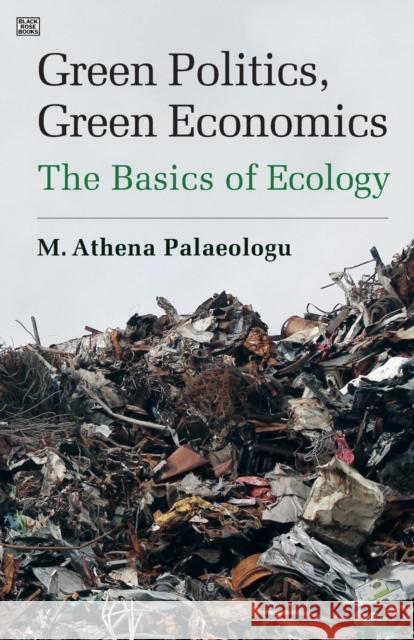Green Politics, Green Economics » książka
Green Politics, Green Economics
ISBN-13: 9781551643328 / Angielski / Miękka / 2010 / 112 str.
Green Politics, Green Economics
ISBN-13: 9781551643328 / Angielski / Miękka / 2010 / 112 str.
(netto: 69,97 VAT: 5%)
Najniższa cena z 30 dni: 72,57
ok. 22 dni roboczych.
Darmowa dostawa!
"Green Politics, Green Economics" analyzes the dominant model of economic growth promoted everywhere and shows how it can be seen to account for the general crisis humanity faces as nature everywhere is in retreat. There are two intersecting economic reasons for the current situation: the changing world economy and the experience of reaching the limits of capitalist production and growth. The responses of governments and corporations to the weaknesses of the prevailing economic practices are noted and a critique is lucidly presented, which minimally includes the reorganization of work, the future of professional relations, the basic reform of the welfare state, the development of free time, the democratization of urban society, and the changes in international power relations.
This brilliant work probes the many facets of capitalism's ecological contradictions and dares to ask the basic question--is sustainable development possible under market capitalism? It is a sobering and timely antidote to the current rash of publications touting a successful marriage of the corporate marketplace with the goals of environmental quality and social justice, in a context where corporations, big and small, are tripping over each other to wash themselves green. The economic system is also examined in the light of the liberal democratic state's inability to manage environmental problems domestically or internationally, whether managed by the right wing or the left wing. How to come out of this impasse is what this rigorous text examines.
M.Athena Palaeologu is a long-time researcher and activist, exploring solutions reflecting social ecology. She holds a PhD in politics and economics.
Given the world-wide ecological crisis, to what extent do the current economic systems of production and consumption need to change? To make substantial changes to the dominant economic system as the author proposes, are a new politics required? What are the relations between economic and political changes? The lucid analysis presented by M.Athena Palaeologu is not only engaging but promising given the proposals offered as a way to move out of the current social impasse.In market-driven economies around the world ecological crises are creating major problems of supply and distribution. The inability of governments to manage these environmental problems both domestically and internationally has led to widespread contradictions between public rhetoric and political practice. A growing number of contemporary publications respond to these crises by advocating a successful marriage of the corporate marketplace with the goals of environmentalism, in a marketing landscape where large and small corporations are tripping over each other to present their “green” credentials. M. Athena Palaeologu’s timely work Green Politics, Green Economics examines these apologetic responses to broach an uncomfortable but fundamental question – is long-term and sustainable development really possible under market capitalism?Palaeologu develops two alternative approaches to these environmental challenges: (i) a “green politics” that places major importance on achieving ecological goals through grassroots participatory citizen involvement, drawing heavily on values shared with feminist and social movements, and; (ii) a “green economics” that address the dynamic and spatial interdependence between human economies and the natural ecosystems which sustain them. The focus of both of these approaches is the “scale” conundrum: how are we to implement a green economics capable of realising development within the ecological constraints of our planet’s biosphere?M. Athena Palaeologu is a long-time researcher and activist. An organiser of alternative movements for social change, her previous widely read anthology was The Sixties in Canada: A Turbulent and Creative Decade. She holds a PhD in politics and economics, exploring political and economic alternatives through social ecological movements.











